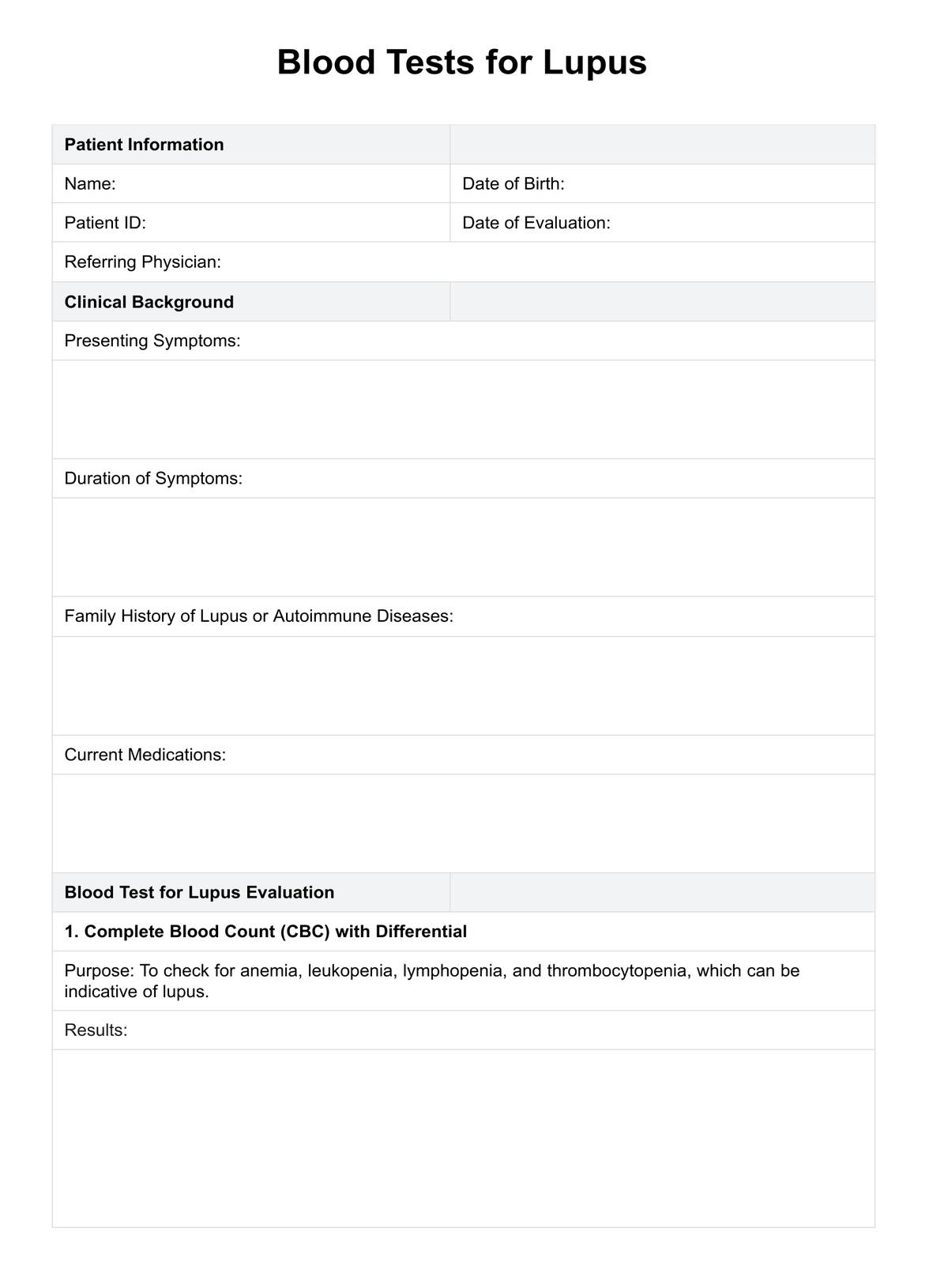No single test can diagnose lupus. A combination of blood tests, clinical examination, and patient history is necessary for a diagnosis.

Blood Tests for Lupus
Download a free Blood Tests for Lupus template. Learn the various types of tests used to diagnose this disease.
Use Template
Blood Tests for Lupus Template
Commonly asked questions
When you test positive on an ANA test, it suggests an autoimmune process. It is common in lupus but can occur in other autoimmune diseases and some healthy individuals.
Certain tests, like complement levels and anti-dsDNA, may help predict flares by indicating increased disease activity.
EHR and practice management software
Get started for free
*No credit card required
Free
$0/usd
Unlimited clients
Telehealth
1GB of storage
Client portal text
Automated billing and online payments











